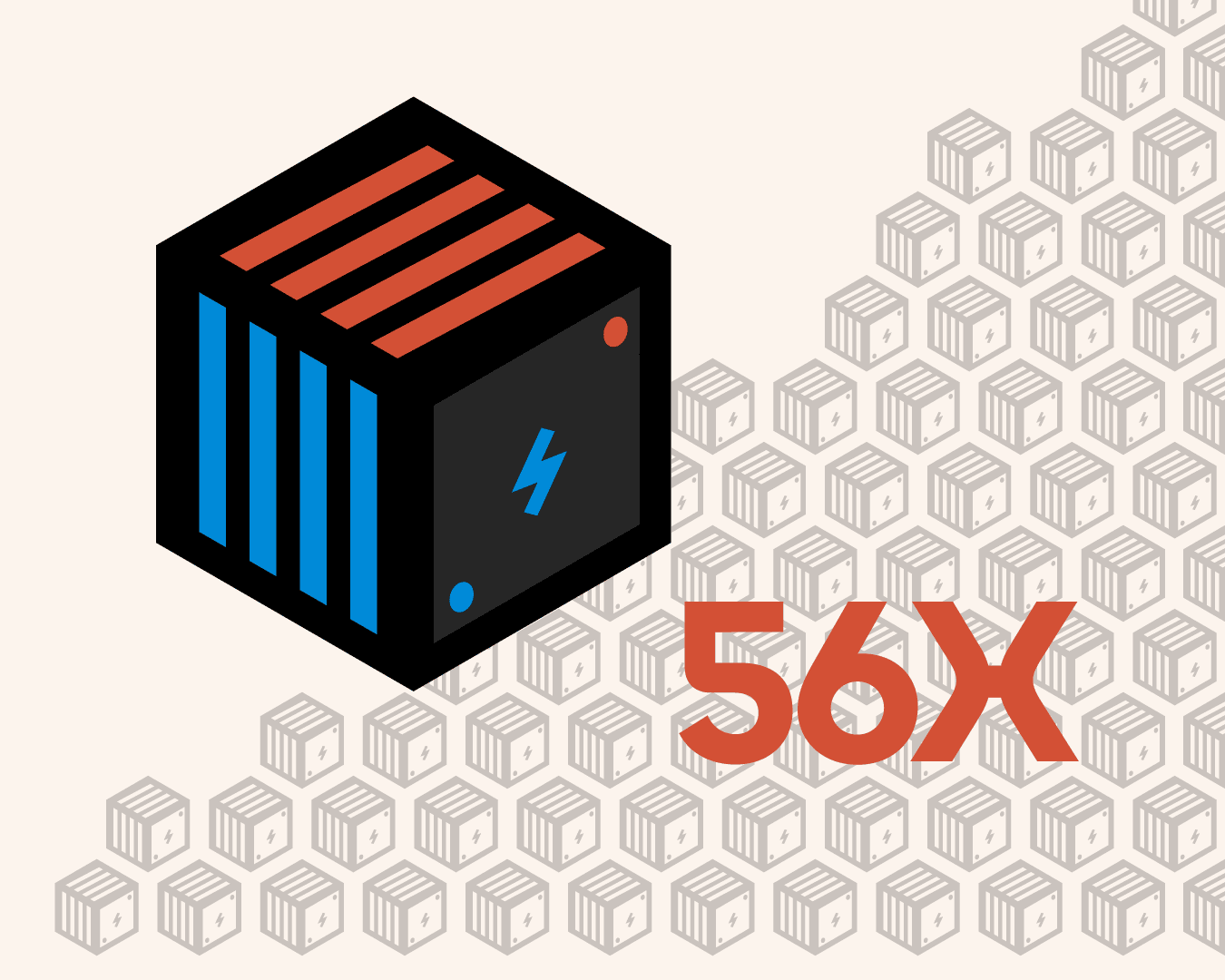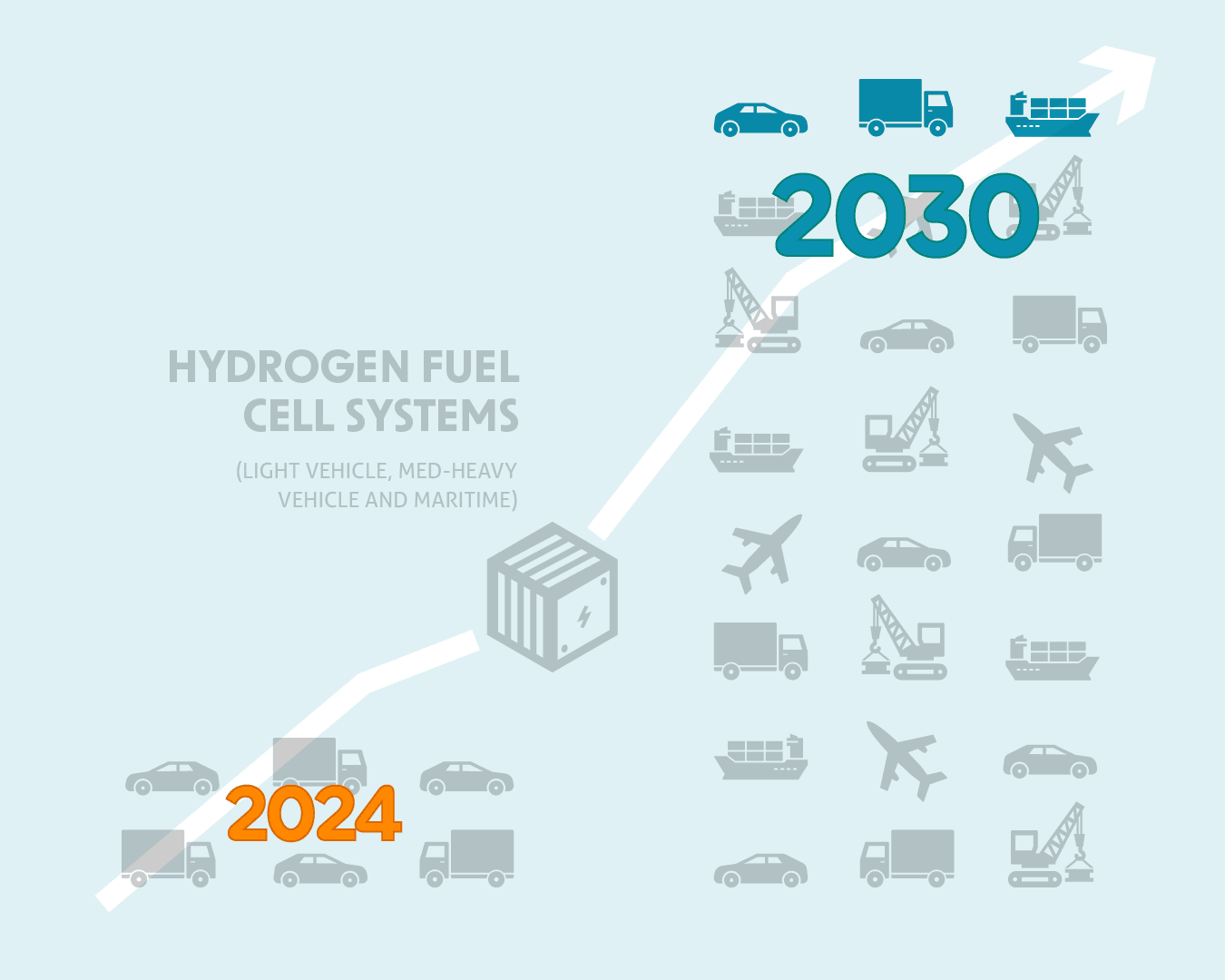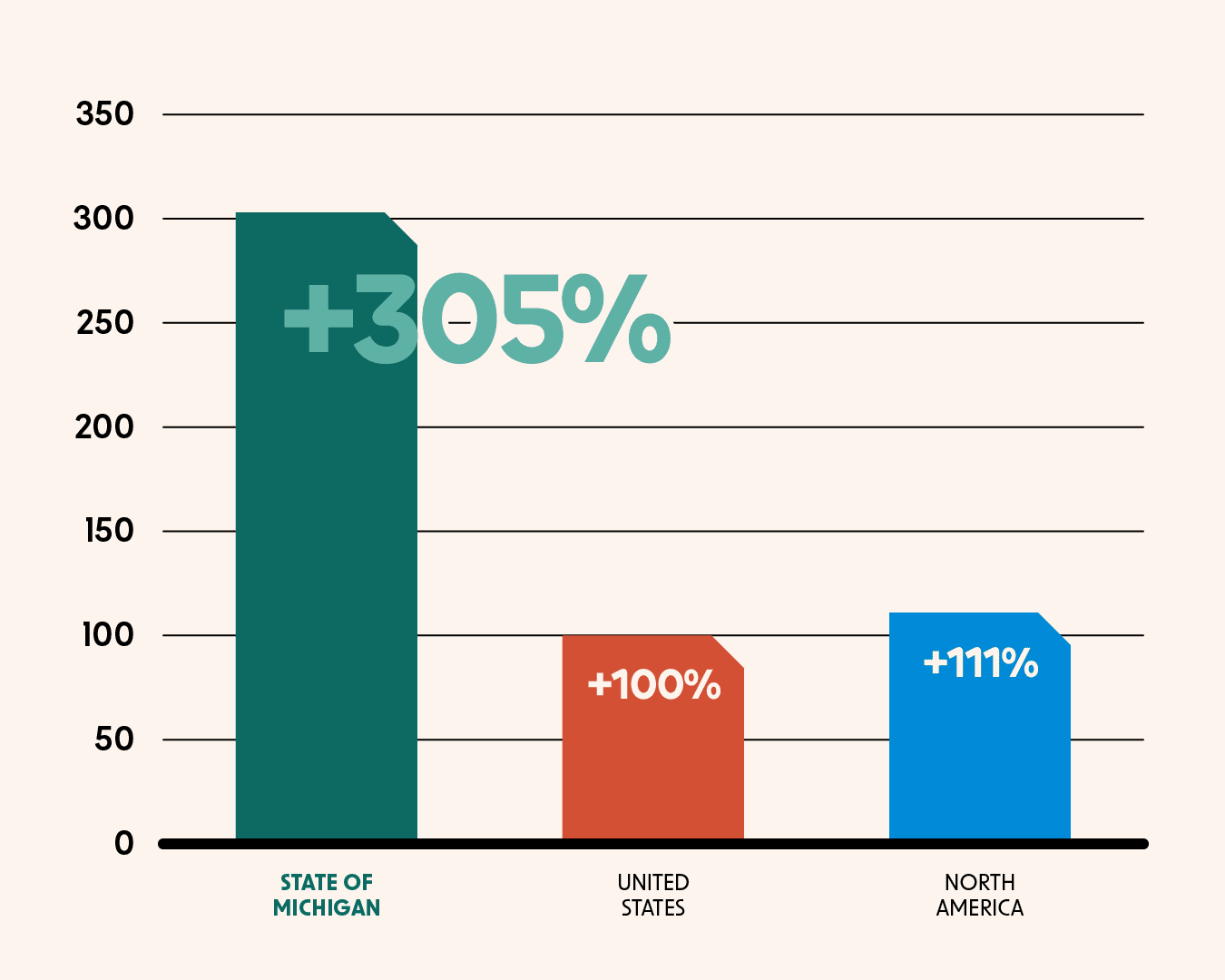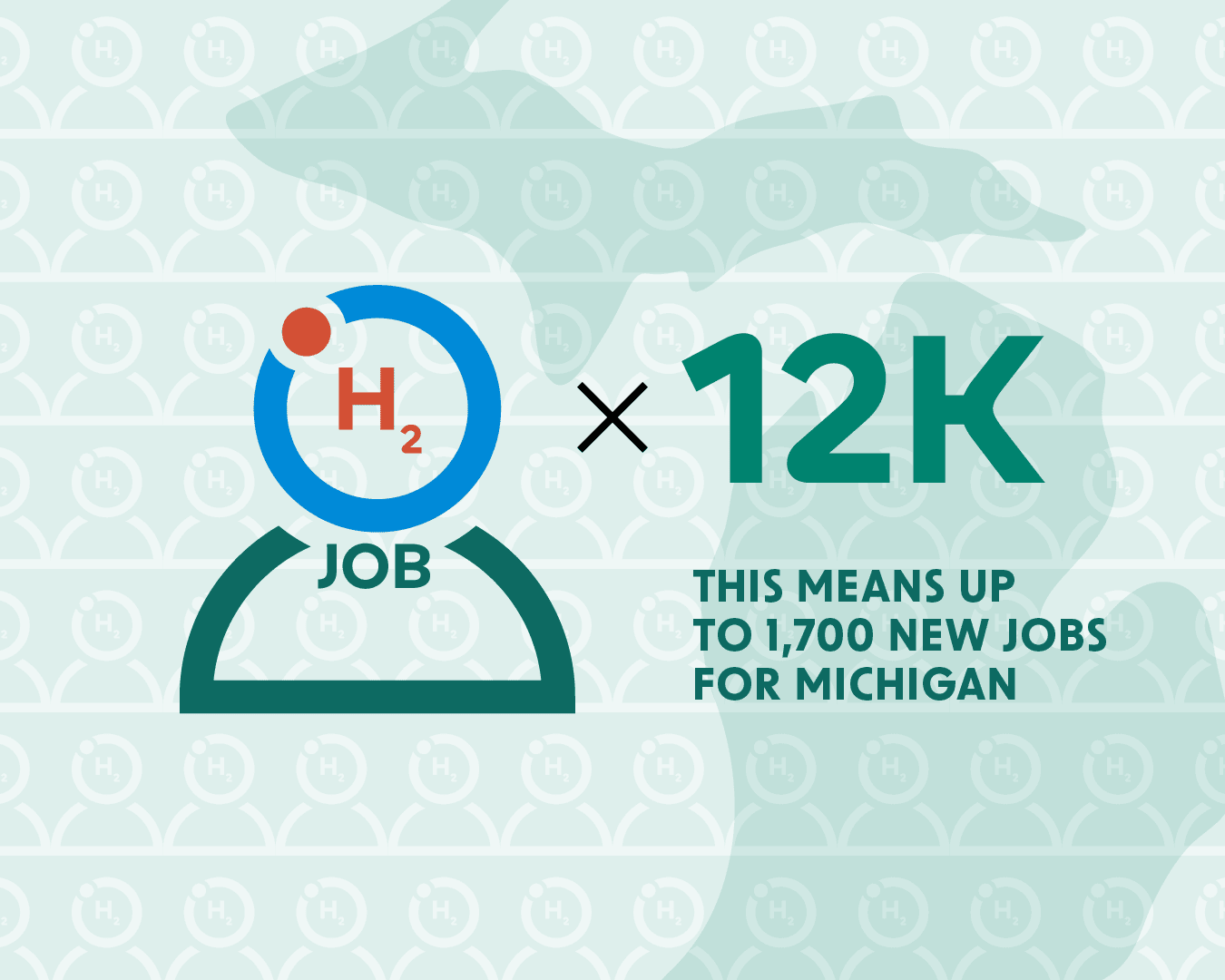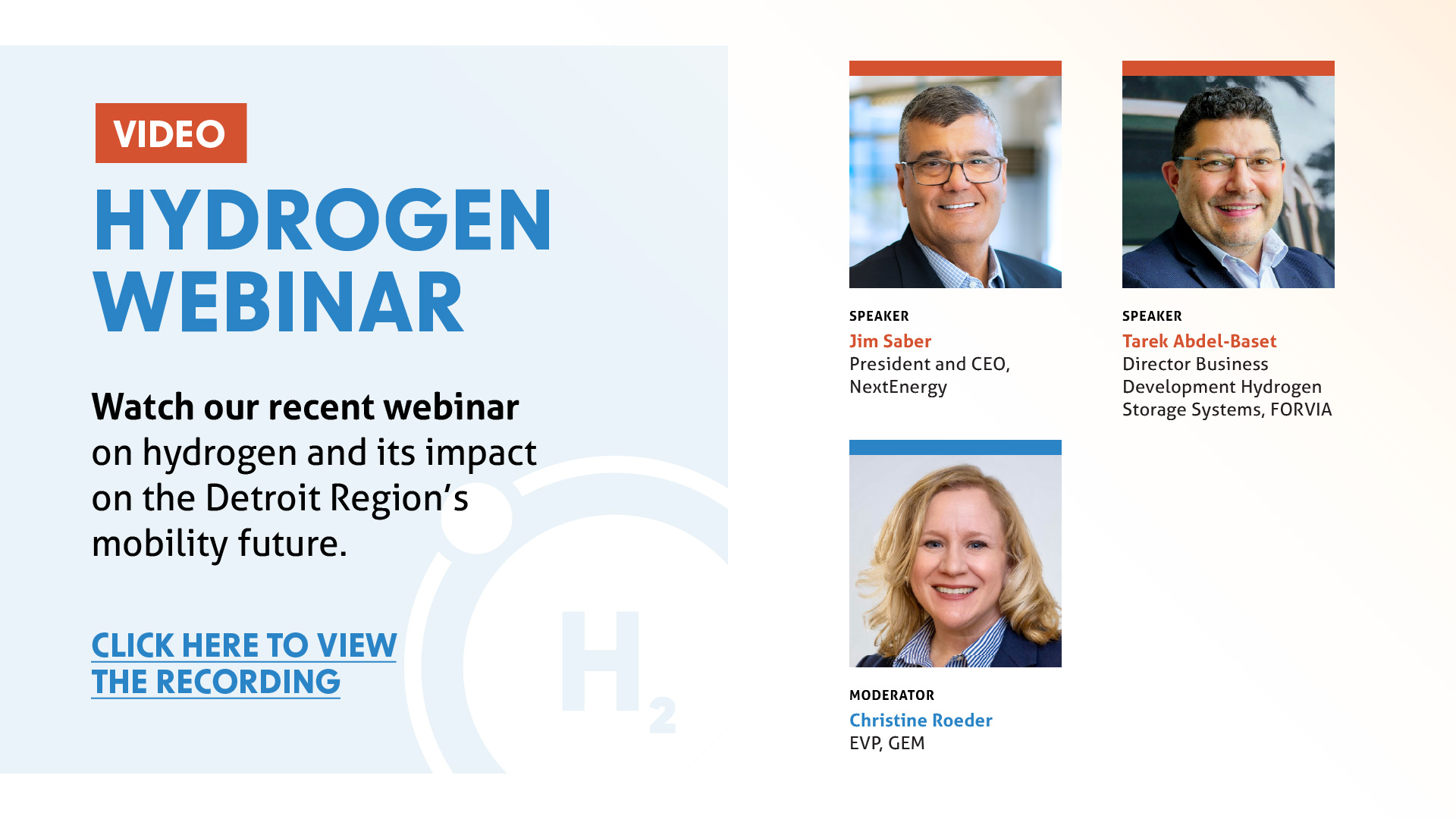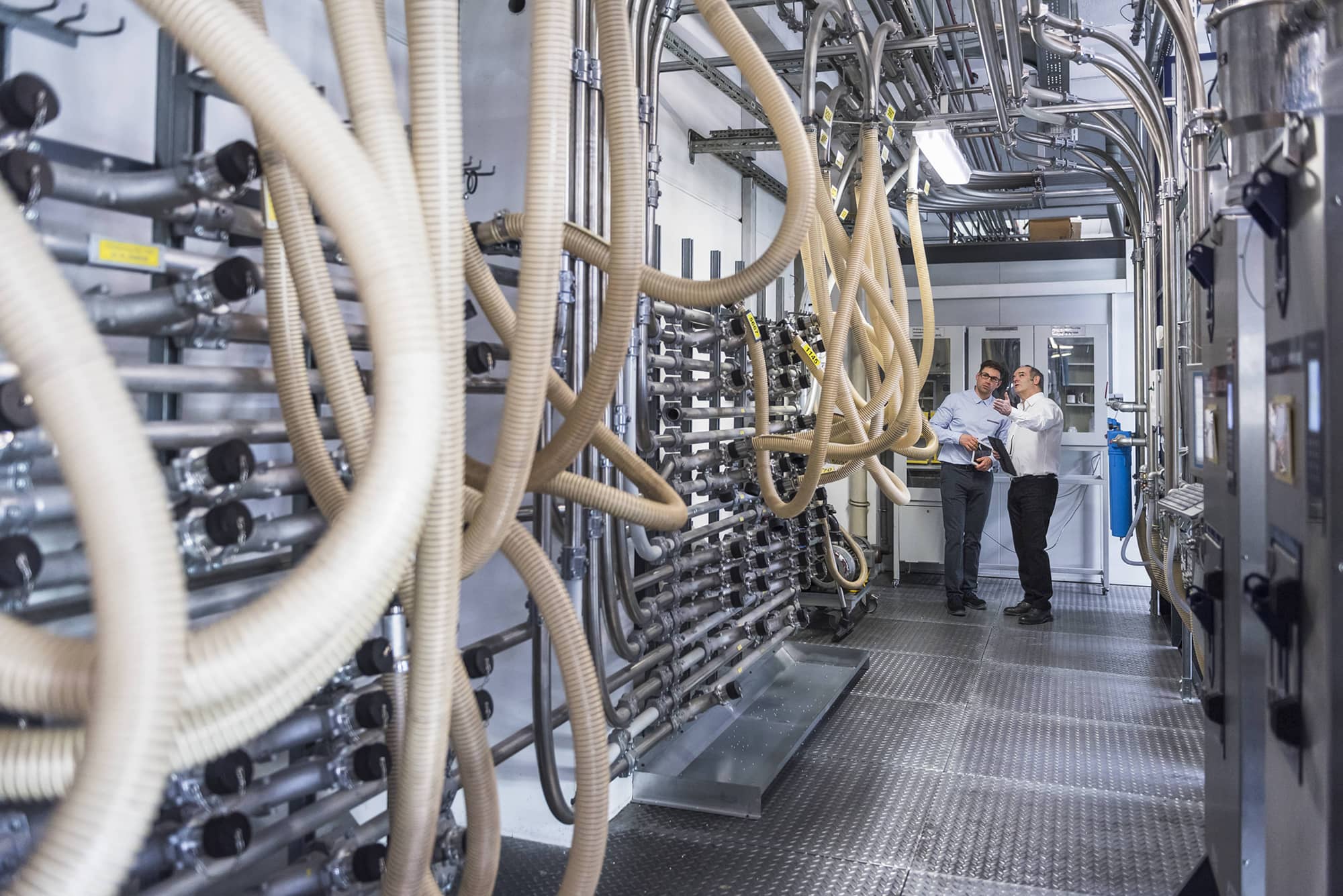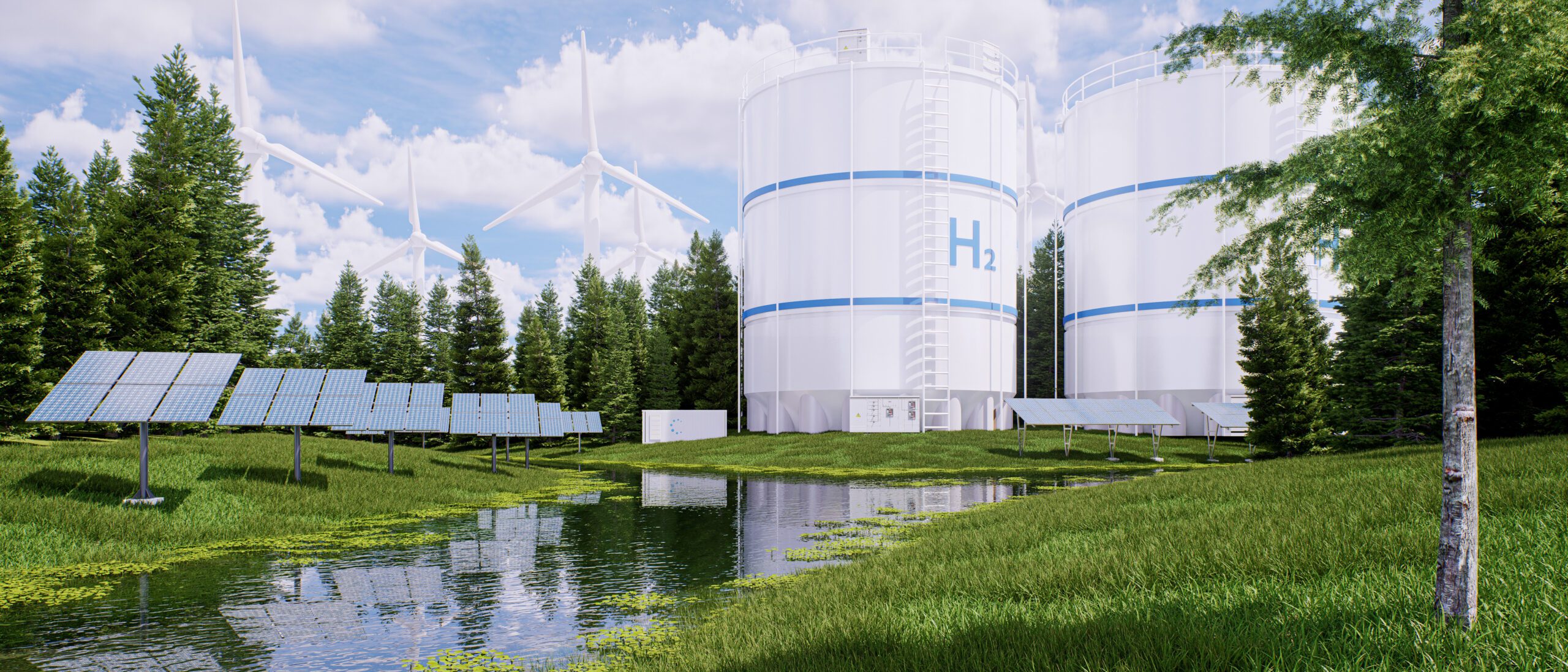Hydrogen
Why is Hydrogen an Important Technology for the Detroit Region’s Mobility Industry?
Hydrogen fuel cell systems generate electricity through a chemical process combining hydrogen with oxygen, producing water and heat as the only byproducts. The electricity generated can be used to power electric vehicles, providing a clean, efficient, and zero-emission alternative to traditional engines.
As a result of recent advancements, hydrogen fuel cell propulsion is gaining ground in conventional vehicle mobility sectors. This presents the Detroit Region with an opportunity to leverage its development, engineering, and production expertise in vehicle powertrain technologies to lead in the development and mass deployment of this important future mobility technology.

 Go to DetroitRegionalPartnership.com
Go to DetroitRegionalPartnership.com
